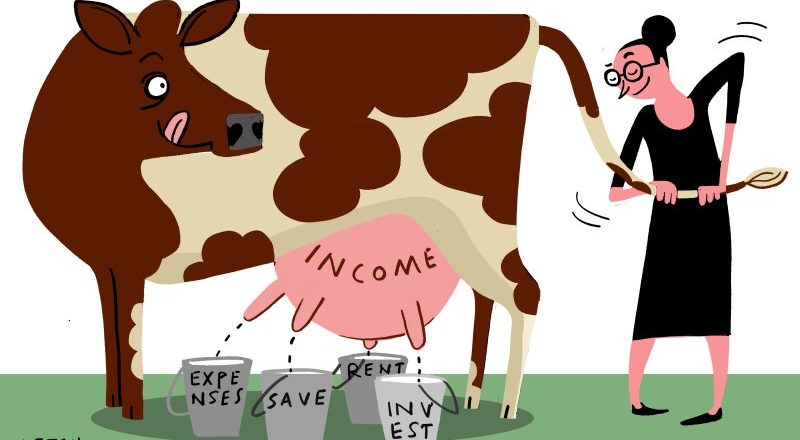Budgeting not working for you? Try this alternative
My partner and I want to save more money. I’ve tried budgeting before, but it never seems to work. Currently, I just put anything “leftover” into savings. I did take up more work a few months ago but still feel like we’re in the same position. I’ve tried cutting back on some expenses as well, and I think there is probably room for us to cut expenses further because we do enjoy going out a lot, but then maybe it would be easier if we just earned more money? What can I do to reach our savings goals faster?
Firstly, sometimes what holds people back from saving more money is their emotional and psychological relationship with money as, ultimately, this is what drives behaviour. No budgeting template can force you to suddenly start spending differently.
Rather than having a strict budget, try a system that automatically divides up your money and sends it to pre-allocated areas.Credit:Simon Letch
For example, people who struggle to save money may see saving money as a bit of a chore – they might feel like it’s stressful, burdensome, boring and restrictive. They may think they have to stick to a budget, which can feel suffocating.
This creates an internal conflict. If you see “saving money” and “enjoying life” as incompatible goals, where you have to pick one or the other, it will always feel like a conflict.
I know this might sound a bit airy-fairy, but having supported many people to start saving consistently and sustainably, I can tell you that often a big part of that shift comes from changing how they relate to the concept of saving money.
Once it becomes something that is exciting and enjoyable, it feels less like you have to give something up, and more like something you look forward to doing.
So, my first tip is to reflect on how you currently feel about saving money. What if you could save more money without having to give up things you enjoy?
Secondly, it sounds like you don’t have clarity on how much money is going where. Getting clear on how much you’re spending and on what is a necessary first step to figuring out where your savings opportunities might be.
So my second tip is to print out one to three months’ worth of bank and credit card statements, categorise your expenses, and figure out where your money is going.
Thirdly, it sounds like you don’t have any real system in place for saving money. Unfortunately, trying to save whatever is leftover rarely works well.
A budget is just one tool. Think of it like a treadmill. A treadmill is one way you can get fit, but there are other options.
You’re not alone in not being able to get budgeting to work for you. Many people spend years trying to budget, with nothing much to show for it, and they start to think: “There must be something wrong with me. Maybe I just suck with finance.”
But the good news is: budgeting is not essential for good money management. A budget is just one tool. Think of it like a treadmill. A treadmill is one way you can get fit, but there are other options.
What I’ve seen work better for most people is having a “cash-flow system”. This means organising your money in a way that allows you to be largely hands-free with managing your everyday cash flow. Your money comes in, and it automatically gets divided up and sent to the pre-allocated areas (bills, savings, investments etc). This is going to make your expense management streamlined, organised and easy to keep on top of.
Currently, it sounds like things are a little all over the place. You’re cutting expenses hoping that’s going to help, but you don’t know how much you need to cut to achieve your goals, and you feel like you need to cut more because you’re not seeing a difference at the end of the month. It’s a lot of guesswork.
This can lead to the assumption that the solution must be to earn more money. Now I’m not saying earning more is a bad thing, definitely do that if you can. However, sometimes when there’s no clarity on what’s happening, the knee-jerk assumption is that more money will fix it. But you already picked up more work and cut expenses, and you’re still not seeing progress.
More money won’t help if you don’t have the systems in place to manage your money because you won’t know where the money is going and why you don’t have enough. You won’t be able to hold on to the savings you make from reducing expenses or increasing income.
So, my last tip would be to review how your income currently gets allocated, and try to set up a cash flow system to help you organise your money more efficiently.
- Advice given in this article is general in nature and is not intended to influence readers’ decisions about investing or financial products. Investors should always seek their own professional advice that takes into account their own personal circumstances before making any financial decisions.
Paridhi Jain is the founder of SkilledSmart, which helps adults learn to manage, save and invest their money through financial education courses and classes.
Most Viewed in Money
From our partners
Source: Read Full Article


